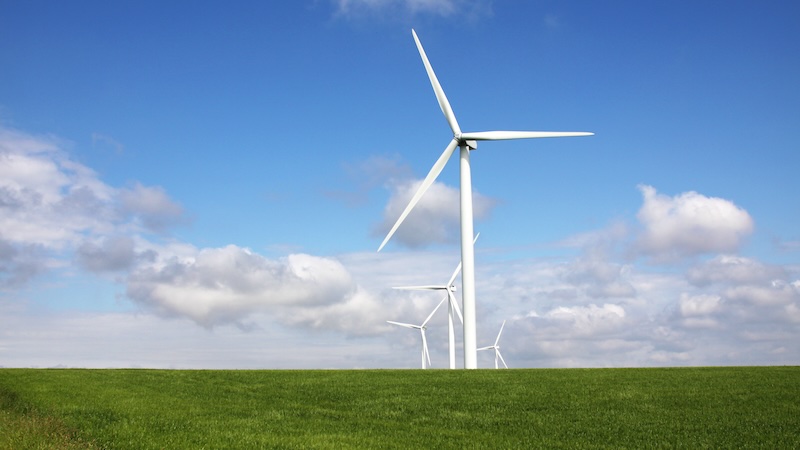
Bavaria only put four new wind turbines into operation in the first half of 2024. The environmental association Greenpeace sharply criticizes the slow expansion. Meanwhile, the Free State runs the risk of missing its own goals.
In Bavaria, only four new wind turbines were put into operation in the first half of 2024. When it comes to installed capacity per square kilometer, the Free State is currently in last place among the German states. This is the result of an evaluation of data from the so-called market master data register Greenpeace Bavaria has carried out.
Wind turbines: expansion in Bavaria is stagnating
In Bavaria, the expansion of wind power has been stagnating at a low level for years. In its coalition agreement, the Bavarian state government set itself the goal of building 1,000 new wind turbines by 2030.
But in order to achieve this goal, Energy Minister Hubert Aiwanger (Free Voters) would have to increase the current number seventeen times per six months. At the current pace, it would take 125 years for the Free State to reach its self-declared goal. Saskia Reinbeck, energy expert from Greenpeace Bavaria, said:
This is a catastrophic result for Bavaria. These figures show Energy Minister Hubert Aiwanger’s lack of seriousness and stubbornness about fossil fuels. There is still a lull in wind power in the Free State.
Free State will not achieve expansion figures
In a nationwide comparison, Bavaria only achieves 38 kilowatts of wind power per square meter. Schleswig-Holstein is the front runner with 551 kilowatts. North Rhine-Westphalia is the second largest country with 266 kilowatts per square meter. Of all the federal states, only Berlin has fewer systems per area. Saskia Reinbeck says:
Hubert Aiwanger now has to speed up significantly in order to quickly make Bavaria independent of increasingly expensive fossil fuels. The business location will become more attractive through a secure supply of renewable energies and we citizens will feel this in the bills for electricity and heating costs.
According to Greenpeace, Bavaria will not achieve the necessary expansion of wind turbines in the coming years. This would be shown by the approvals granted for wind turbines that are scheduled to go into operation in the next two to three years.
In the first half of 2024, Bavaria only approved 16 new wind turbines with a total output of 90 megawatts. For comparison: The study “Energy system analysis Bavaria climate-neutral”, which was commissioned by the Ministry of Economics, estimates a requirement of 406 megawatts per six months. According to Greenpeace, the Free State would not be climate neutral until 2301 if emissions continue to fall at the average rate from 2003 to 2021.
Also interesting:
- How much does a wind turbine actually cost?
- Wind turbine alternative: Hamburg company generates energy with a parachute
- Environmental pollution: Researchers destroy plastic with laser beams
- New lithium metal battery: twice the performance and still more environmentally friendly
The article “Catastrophic balance sheet”: Bavaria has only built four wind turbines this year by Fabian Peters first appeared on BASIC thinking. Follow us too Facebook, Twitter and Instagram.
As a Tech Industry expert, I would view Bavaria’s low number of wind turbine installations as a concerning sign of a catastrophic balance sheet. The transition to renewable energy sources such as wind power is crucial for both environmental sustainability and economic growth. By only building four wind turbines in a year, Bavaria is falling behind in meeting its renewable energy targets and potentially missing out on opportunities for job creation and innovation in the clean energy sector.
It is important for Bavaria to reevaluate its priorities and investment strategies to ensure that it can increase its deployment of wind turbines and other renewable energy technologies. This may involve examining regulatory barriers, financial incentives, and public-private partnerships to accelerate the transition to a more sustainable energy system.
Overall, the low number of wind turbine installations in Bavaria is a warning sign that the region may be at risk of falling behind in the global clean energy transition. It is crucial for policymakers, businesses, and stakeholders to work together to address this issue and ensure that Bavaria can secure a more sustainable and prosperous future.
Credits
